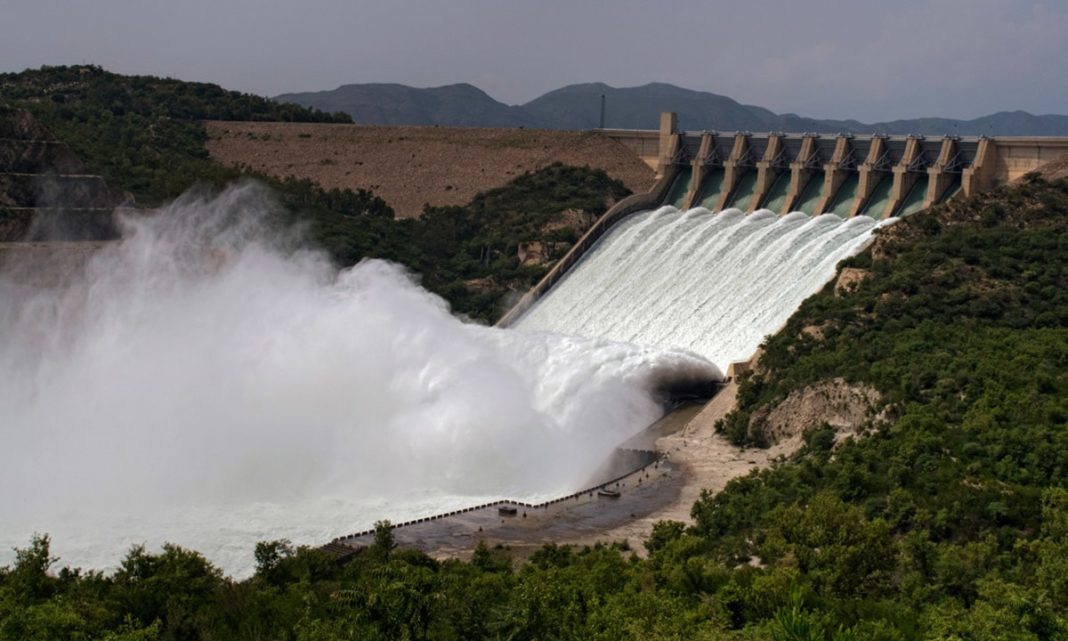The IMF has rejected Pakistan’s proposal to impose 1% water storage cess on goods to build mega-dams. Instead, the IMF has suggested increasing the 18% standard sales tax rate for funding any large-scale federal development program.
The development committed an anticipated revision in the cost of the Dayamir Bhaja Dam and needs funds to build a new Chenab Dam over the Chenab River. The new construction will require at least an additional Rs. 800 billion, claims the government sources.
Official sources also claim that the global lenders have not endorsed the proposal to impose water storage cess, which the government wanted to introduce in every taxable product produced in the country, except for electrical energy and medicines. The cess has been proposed to fund the two mega-water storage dams and build a new one as a solution to deal with the Indian water aggression.
The development pushes the government into a tight spot, which was willing to increase the tax burden but only in a fashion that will ensure that 100% of the collection stays in the federal kitty instead of being shared with provinces. In the case of cess, the government will have the full right to the collection, while sales tax would become part of the federal divisible pool. The government had sought the IMF’s permission to impose the new tax after majority of the provincial governments showed reluctance to finance the early completion of the Diamer Bhasha Dam and the Mohmand Dam. The government has also proposed that the provinces should also pick half of the Rs. 716 billion cost of the Benazir Income Support Program, and Rs. 315 8 billion fiscal space will be utilised to construct a dam to deal with the Indian water aggression shortly.
However, the provinces have refused this proposal. The spokesman of the Ministry of Finance, Kumar Abbas, did not comment on the development. The sources also claim that the IMF has many objections to the water storage cess proposal, basing their objections on legal and governance challenges. They added that the fund was of the view that any special levy reduces the flexibility in the budget, and sales tax can give such flexibility.
Moreover, the IMF was also not comfortable with the idea of giving control of the new cess to the Water and Power Development Authority. The IMF had earlier asked the government to fund these dams from the Rs. 1 trillion worth public sector development program, but the government was not inclined to get more money from the PSDP, which the year was focusing more on the needs of the coalition partners than having mega strategic projects as national priority.
The IMF has proposed that if the government wants to get more money for development, it can consider increasing the rate of sales tax. The standard sales tax rate is 18% while the government also charges 3% extra sales tax rate in case a good is sold to an unregistered person. The government’s earlier decision to increase the petroleum levy rate to give an electricity subsidy and fund a road in Balochistan has also contributed to the increase in diesel and petrol prices since July 1st.
The landed cost of diesel is Rs. 177.89 per litre and petrol Rs. 168.73 per litre, excluding all types of margins, rupee depreciation, impact, and taxes. However, after these additional costs, the high-speed diesel price is Diamer Basha Dam at the cost of Rs. 479 billion and the Mohmand Dam at Rs. 310 billion, seven years ago. However, the sources claim that the revised estimates suggest that the Dayamir Basha Dam cost may skyrocket to over Rs. 1.1 trillion and an addition of around Rs. 620 billion. The exact cost will be determined when the planning ministry receives the revised documents.














